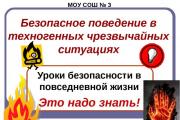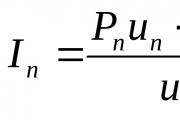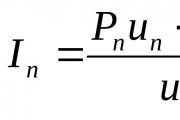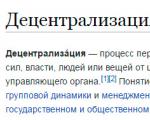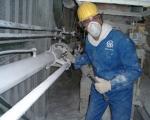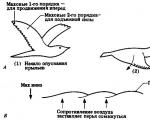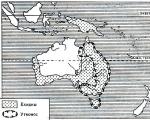Request and receive the necessary information and documents related to the issues of its activities. 3.2. Make proposals to improve the economic efficiency of a healthcare institution. 3.3. Take part in conferences and meetings at which economic issues of the institution’s activities are discussed. 3.4. Require management to assist in the execution of their professional responsibilities and exercise of rights. 3.5. Improve your qualifications. 3.6. For all provided for by law social guarantees. 3.7. Other rights provided for labor legislation. 4. Responsibility of the employee The economist of a healthcare institution is responsible for: 4.1. For non-fulfillment or improper fulfillment of your job responsibilities provided for by this job description - within the limits determined by the current labor legislation of the Russian Federation.
Job description of an economist at a healthcare institution
Request and receive the necessary information and documents related to the issues of its activities. 3.2. Make proposals to improve the economic efficiency of a healthcare institution.
3.3.
Take part in conferences and meetings at which economic issues of the institution’s activities are discussed. 3.4. Require management to provide assistance in the performance of their professional duties and rights.
Info
Improve your qualifications. 3.6. For all social guarantees provided for by law. 3.7. Other rights provided for by labor legislation.
4. Responsibility of the employee The economist of a healthcare institution is responsible for: 4.1. For failure to perform or improper performance of one’s job duties as provided for in this job description - within the limits determined by the current labor legislation of the Russian Federation. Healthcare Economist
Participation in the review of developed production economic plans, carrying out work on resource conservation, introducing and improving on-farm accounting, improving progressive forms of labor organization and management, as well as planned and accounting documentation. 2.13. Preparation of materials for concluding contracts, monitoring deadlines for fulfilling contractual obligations.
2.14.
Important
Monitoring progress planned tasks by institution and its divisions, using on-farm reserves. 2.15. Participation in the marketing research and forecasting the development of a healthcare institution.
2.16. Record keeping economic indicators results production activities institution and its divisions, as well as accounting of concluded contracts. 3. Rights of an employee An economist at a healthcare institution has the right to: 3.1. Job Descriptions
Attention
Performs work on the formation, maintenance and storage of a database of economic information in a healthcare institution, and also makes changes to reference and regulatory information used in data processing. 2.8. Conducts comprehensive economic analysis all types of activities of healthcare institutions.
2.9.
Development of activities for effective use capital investments, material, labor and financial resources. 2.10. Helps increase labor productivity, reduce Get the full text of the costs of providing medical services, eliminating losses.
2.11. Determining the economic efficiency of labor and production organization, introducing new technologies and inventions. 2.12.
Illuminations
Professionally important qualities: . (list qualities) 2. Job responsibilities The economist of a healthcare institution is assigned the following job responsibilities: 2.1. Work on economic support for the activities of a healthcare institution. 2.2. Preparation of data for drawing up projects economic and financial activities of a health care institution.
2.3.
Preparation of necessary reports within established deadlines. 2.4. Performs cost calculations for medical services. 2.5.
Performs calculations on the necessary material, labor and financial costs. 2.6. Keeps records of economic indicators of the performance of the healthcare institution and its structural divisions. 2.7.
Typical job description for an economist in a budgetary institution
With the legal department on the following issues: Obtaining: - clarifications of current legislation and the procedure for its application; — analysis of changes and additions to financial, tax, civil legislation; Providing: - applications to search for the necessary regulatory documents, as well as for clarification of current legislation. 1.5 Job description economist medical organization Job description of an economist I approve: (initials, surname) Municipal government health care clinic No. 15. dated January 1, 2011. This job description was developed and approved on the basis of employment contract with Alferova Irina Sergeevna, economist at the Municipal Health Clinic No. 15 in accordance with the provisions of the Labor Code Russian Federation and other regulations governing labor relations in the Russian Federation.
I. General provisions 1.1.
People settling in public services and organizations must strictly follow instructions, minimize errors and other human factors. For failure to fulfill their obligations to the state and society, they may be subject to fines, sanctions, reprimand, dismissal or even conviction.
But the people involved in the process also have rights. government agencies, wider than that of workers commercial organizations. Thus, they are entitled to longer vacations, quarterly and annual bonuses are paid, and a social package is provided in full.
Additional bonuses for working for the state can include free or discounted travel on public transport, annual trips to a sanatorium for minor children and other positive aspects.
Job responsibilities of an economist at a budgetary institution (for resume)
I approve (organizational and legal form, (signature) (full name, full name, position of the head, name of the organization, or other official enterprise) person authorized to approve the job description) » » 20
M.P. Job description of an economist at a healthcare institution (name of healthcare institution) This job description was developed and approved on the basis of an employment contract with an economist, in accordance with the Labor Code of the Russian Federation and other regulations governing labor relations. 1. General provisions 1.1. The economist of a healthcare institution belongs to the category of specialists and is directly subordinate.
(name of manager's position) 1.2. A person with a higher professional education in his specialty and work experience is hired for the position of economist at a healthcare institution. 1.3.
What are the job responsibilities of an economist at a medical organization?
An indicator confirming this can be considered the fact that every fifth school graduate, when choosing a profession, applies to economic departments of universities. Both scientific specialists and practitioners working on various enterprises and planning economic activities.
In general, economists are concerned with:
- collection of information;
- information processing;
- organizing information;
- analysis of the results of activities;
- assessing the success of the enterprise;
- searching for opportunities to improve work;
- forecasting;
- long-term and current planning.
In healthcare institutions, the economist participates in developing the budget and monitoring its execution, as well as in the preparation and generation of reporting, managerial and periodic.
Functional responsibilities of an economist in healthcare
Features of the work of an economist in budgetary sphere Budgetary organizations differ in many ways from commercial ones. The chart of accounts of the balance sheet used in transactions and some unified forms of documents also differ.
In addition, the receipt of funds, their expenditure and reporting for them are also taken into account in a completely different way. But, oddly enough, the job responsibilities of an economist budgetary institution not far from the duties of employees trading companies. Yes, the economist will use different calculation formulas, postings and reporting documentation in his work, but its essence will not change fundamentally. His responsibilities still include analysis, calculation and support of the organization’s activities. Education, categories and experience There are universities and academies in different cities of the country that prepare students directly for public service.
Job responsibilities of an economist in medicine
Request and receive the necessary information and documents related to the issues of its activities. 3.2. Make proposals to improve the economic efficiency of a healthcare institution. 3.3. Take part in conferences and meetings at which economic issues of the institution’s activities are discussed. 3.4. Require management to provide assistance in the performance of their professional duties and rights. 3.5. Improve your qualifications. 3.6. For all social guarantees provided for by law. 3.7. Other rights provided for by labor legislation. 4.
Responsibility of the employee The economist of a healthcare institution is responsible for: 4.1. For failure to perform or improper performance of one’s job duties as provided for in this job description - within the limits determined by the current labor legislation of the Russian Federation.
Job Responsibilities of a Leading Healthcare Economist
The job responsibilities of an economist necessarily include research, planning and economic support for the activities of the institution. Market relations have placed health care economics in a leading position in the work of medical institutions. Since health can be considered a material value, and medicine can be considered a productive resource-saving factor, the work of economists in health care organizations takes on new significance. For many years there was an opinion that health care is in the area of intangible production, which is manifested by its action, but not by the financial expression of activity. Healthcare is designed to serve the population by helping to reduce morbidity and mortality, improving the physical and mental health of people, and increasing life expectancy.
Perform calculations on material, labor and financial costs necessary for the production and sale of products, the development of new types of products, advanced equipment and technology. 3.4. Carry out economic analysis economic activity enterprise and its divisions, identify production reserves, develop measures to ensure economy, increase production profitability, competitiveness of products, labor productivity, reduce production and sales costs, eliminate losses and unproductive expenses, as well as identify opportunities for additional production. 3.5. Define economic efficiency organization of labor and production, introduction of new equipment and technology, rationalization proposals and inventions. 3.6.
Job description of an economist at a healthcare institution
A prominent representative is RANEPA under the President of the Russian Federation. In the educational program such educational institutions items are provided that explain the intricacies of working in budgetary organizations. But in reality, to get to this workplace, it is absolutely not necessary to graduate from a special institute. It is enough to get an education as an economist. IN government organizations There is a practice of assigning categories to specialists.
The job responsibilities of an economist at a budgetary institution depend on it. It is assigned depending on the level of education and work experience.
- Uncategorized specialist - a university graduate without work experience or a specialist with secondary vocational education and at least three years of experience in this field.
Healthcare Economist
Economist is a profession with a very wide range functional responsibilities, varieties and branches of activity. Economists are in demand everywhere in one form or another, with different names positions and a list of controlled tasks. Today, this direction is very popular among young people choosing their future professional environment, specialty and future workplace.
This article will discuss the job responsibilities of an economist at a budgetary institution, his work instructions, necessary knowledge, as well as the peculiarities of working for the state. The work of an economist The profession of “economist” is a fairly broad concept that includes a lot of positions. This includes accountants, analysts, auditors, and management positions. Job Descriptions
Specialist with average specialized education in other engineering and technical fields, he can get a position as an economist without a category in a budgetary institution if his experience is more than five years.
- The second category is given to a specialist with higher education and work experience in the field of economics or in other engineering and technical fields in a position held by a specialist with a higher education for at least three years.
- The first category is a specialist with higher education and experience as an economist of the second category for at least three years.
Knowledge required in the job The job responsibilities of an economist at a budgetary institution require a specialist holding this position to have a certain set of knowledge and skills.
Illuminations
I approve [position, signature, full name of the head or other official authorized to approve the job description] [day, month, year] M.P. Job description of an economist of a healthcare institution [name of a healthcare institution] This job description has been developed and approved in accordance with with the provisions of the Labor Code of the Russian Federation and other regulations governing labor relations in the Russian Federation. 1. General provisions 1.1. The economist of a healthcare institution belongs to the category of specialists and is directly subordinate to [name of the manager's position].
1.2. A person with a higher professional education in the specialty and work experience [enter as required] is accepted for the position of economist at a healthcare institution. 1.3.
Typical job description for an economist in a budgetary institution
Professionally important qualities: [list qualities]. 2. Job responsibilities The economist of a healthcare institution is assigned the following job responsibilities: 2.1. Work on economic support for the activities of a healthcare institution. 2.2.
Attention
Preparation of data for drawing up projects for the economic and financial activities of a healthcare institution. 2.3. Preparation of necessary reports within established deadlines. 2.4. Performs cost calculations for medical services. 2.5.
Performs calculations on the necessary material, labor and financial costs. 2.6. Keeps records of economic indicators of the performance of the healthcare institution and its structural divisions. 2.7. II. Functions The economist is assigned the following functions: 2.1. Doing the implementation work economic activity enterprises. 2.2. Preparation of reports. 2.3. The procedure for fulfilling limits 2.4.
Info
Conclusion of contracts III. Job responsibilities To perform the functions assigned to him, the enterprise economist must: 3.1. Carry out work to implement the economic activities of the enterprise, aimed at increasing the efficiency and profitability of production, the quality of products and the development of new types of products, achieving high final results with the optimal use of material, labor and financial resources. 3.2. Prepare initial data for drawing up economic, financial, production and commercial activities(business plans) of the enterprise in order to ensure growth in product sales and increase profits.
3.3.
Job responsibilities of an economist at a budgetary institution (for resume)
Participation in the consideration of developed production and economic plans, carrying out work on resource conservation, in the implementation and improvement of on-farm accounting, improvement of progressive forms of labor organization and management, as well as planning and accounting documentation. 2.13. Preparation of materials for concluding contracts, monitoring deadlines for fulfilling contractual obligations. 2.14. Monitoring the progress of implementation of planned targets for the institution and its divisions, the use of on-farm reserves. 2.15. Participation in conducting marketing research and forecasting the development of a healthcare institution. 2.16. Keeping records of economic indicators of the results of production activities of the institution and its divisions, as well as records of concluded contracts. 3. Employee rights An economist at a healthcare institution has the right to: 3.1.
What are the job responsibilities of an economist at a medical organization?
An economist belongs to the category of specialists. He is hired and dismissed by order of the director of the enterprise upon the recommendation of the deputy. chief physician economic department. 1.2. Appointed to the position of: - category I economist is a person who has a higher professional economic education and work experience as a category II economist for at least 2 years; 1.3. The economist reports directly to the deputy. Chief Physician for Economics. 1.4. During the absence of the economist (business trip, vacation, illness, etc.), his duties are performed by a deputy appointed in accordance with the established procedure, who bears full responsibility for the proper and timely performance of his duties. 1.5.
Functional responsibilities of an economist in healthcare
- economic theory;
- economics of enterprises;
- analysis of the organization's activities;
- management;
- marketing;
- service quality management;
- personnel management;
- accounting, financial and tax accounting;
- business planning;
- finance and credit;
- investment assessments;
- jurisprudence;
- legal regulation in healthcare;
- commercial law;
- financial law;
- organization of medical care;
- quality management of services in medicine;
- modern medical technologies;
- non-traditional methods of diagnosis and treatment.
In the performance of his duties, the economist of a healthcare institution must engage in planning commercial and economic activities to ensure the profitability and profitability of the services provided.
Job responsibilities of an economist in medicine
- tariffs for employees;
- tracking expenses, report on budget use;
- calculation of budget payments, appropriations and other amounts provided for in the work of this budget organization;
- analysis of activities, its optimization based on the results of the analysis;
- communications with higher structures;
- control over the fulfillment of contractual obligations of the parties;
- preparation of periodic reports;
- conducting procurement in a budget organization;
- generation, storage and provision of access to archives of documentation and reports.
Rights and responsibilities of an employee Job responsibilities of an economist at a budgetary healthcare institution, educational institutions and other state and municipal services imply seriousness and increased responsibility of the work.
Job Responsibilities of a Leading Healthcare Economist
Request and receive the necessary information and documents related to the issues of its activities. 3.2. Make proposals to improve the economic efficiency of a healthcare institution. 3.3. Take part in conferences and meetings at which economic issues of the institution’s activities are discussed.
3.4. Require management to provide assistance in the performance of their professional duties and rights. 3.5. Improve your qualifications. 3.6. For all social guarantees provided for by law. 3.7. Other rights provided for by labor legislation. 4. Responsibility of the employee The economist of a healthcare institution is responsible for: 4.1. For failure to perform or improper performance of one’s job duties as provided for in this job description - within the limits determined by the current labor legislation of the Russian Federation.
I APPROVED
Director
OSU "Institution"
____________ I.I. Ivanov
"___"___________ G.
Job description
leading economist
OSU "Institution"
1. GENERAL PROVISIONS
1.1. The job description has been developed in accordance with the provisions Labor Code Russian Federation, Qualification guide positions of managers, specialists and other employees, approved by the Resolution of the Ministry of Labor of the Russian Federation dated August 21, 19981. No. 37 and other regulations governing labor relations.
1.2. The leading economist belongs to the category of specialists; he is hired and dismissed by order of the director.
1.3. A person with a higher professional (economic) degree and work experience in the specialty of at least 5 years is appointed to the position.
1.4. The leading economist reports directly to the chief accountant of the institution and carries out his activities in accordance with the Charter of the institution, internal labor regulations and other local acts.
1.5. In his activities, the leading economist is guided by:
» regulatory documents regarding the work being performed;
» methodological materials related to relevant issues;
» The charter of the institution;
» labor regulations;
» orders and instructions of the Department of Culture of the Regional Administration, the director and chief accountant of the institution;
» this job description.
1.6. A leading economist should know:
» legislative and regulatory legal acts, teaching materials on planning, accounting and analysis of the institution’s activities; organization of planned work;
» the procedure for developing promising and annual plans economic, financial and production activities of the institution and cost estimates;
» planning and accounting documentation; organization of operational and statistical accounting;
» procedure and deadlines for reporting;
» labor legislation;
» labor protection rules and regulations;
» rules for drawing up contracts;
» forms and methods accounting in an institution;
» plan and correspondence of accounts;
» organization of document flow in accounting areas;
» technology automated processing accounting information in the Bars.Budget-Accounting program.
2 FUNCTIONS
The leading economist is assigned the following functions:
2.1. Carrying out work to carry out the economic activities of the institution.
2.2. Preparation of reports.
3 JOB RESPONSIBILITIES
To perform the functions assigned to him, the leading economist of the theater must:
3.1. Perform work to implement the financial activities of the institution.
3.2. Participate in the formation and use of funds for establishing an enterprise, analyze their structure and movement.
3.3. Develop, based on economic indicators, long-term and annual projects financial plans, revenue forecasts Money to the institution's accounts.
3.4. Ensure prompt financing, fulfillment of settlement and payment obligations, timely reflection of ongoing changes in the institution’s solvency, and monitor the status of its own funds.
3.5. Monitor the implementation of financial indicators by departments of the institution, compliance cash discipline, settlements with suppliers (customers), timely receipt of all funds due to the institution, ensures compliance with the savings regime.
3.6. Analyze the execution of estimates, operational and accounting reports on financial activities.
3.7. Prepare applications for subsidies for other purposes to the Department and draft cost estimates for the implementation of subsidies for other purposes.
3.8. Take part in the preparation of the draft collective agreement, development and introduction of additions and changes to collective agreement and monitor the fulfillment of accepted obligations.
3.9. Prepare estimates for new productions and reports on their performance.
3.10. Draw up regulations on entrepreneurial activity (paid services ah) and make changes as necessary.
3.11. Post information on the website http:bus.gov.ru, if necessary, make changes during the year (information about the state task and its implementation, information about the plan of financial and economic activities, information about operations with targeted funds from the budget, information about the results of activities and on the use of property, information on control measures carried out and their results, a balance sheet of a state (municipal) institution, a report on the institution’s implementation of its financial and economic activity plan, a report on financial results activities).
3.12. Compile annually:
» Draft estimates and make changes if necessary:
— cost estimate for the implementation of the state assignment of the institution;
— estimates of income and expenses for business and other income-generating activities.
» Plan of financial and economic activities of the institution by sources of financing, if necessary, make changes.
» Report on the results of the regional government autonomous institution and about the use of the assigned state property.
» Report on the network, states and contingents.
» Explanatory note to annual report.
» Calculation of prices for paid services provided by the institution.
» List of types of business activities (paid services) and price list for services provided by the institution.
» Statistical reporting on time:
— Form No. 3-inform: Information on the use of information and communication technologies and production computer technology, software and provision of services in these areas.
— Form No. 1-services: Information on the volume of paid services to the population.
— Form No. 1-TR (motor transport): Information about vehicles and the length of non-public roads.
— Form No. 4-TER: Information on balances, receipt and consumption of fuel and energy resources, collection and use of waste petroleum products.
3.13. Compile quarterly:
» Report on the implementation of the state task and explanatory notes to him.
» Explanatory notes to accounting reports.
3.14. Monthly:
» Compile information on the volume of revenue from paid services.
» Prepare periodic reports, justifications, certificates, explanatory notes.
»Collect and accumulate information and other necessary materials to complete planned work or individual tasks.
» Systematize and summarize statistical materials and other data on the topic (task) as a whole, its individual sections or stages.
» Keep records utilities.
» Perform work on the formation, maintenance and storage of a database of planning and economic information, make changes to reference and regulatory information used in data processing.
3.15. Prepare documents for transfer to the archive.
3.16. Systematically improve your skills.
3.17. Carry out one-time instructions from the chief accountant.
4 RIGHTS
The leading economist has the right:
4.1. Get acquainted with draft decisions of the institution’s management relating to its activities.
4.2. Submit proposals for improvement of work related to the responsibilities provided for in these instructions for consideration by management.
4.3. Receive from heads of structural divisions, specialists information and documents necessary to perform their job duties.
4.4. Involve specialists from all structural divisions of the institution to resolve the responsibilities assigned to it.
4.5. Demand that the management of the institution provide assistance in the performance of their official duties and rights.
5 RESPONSIBILITY
The Lead Economist is responsible for:
5.1. For failure to perform (improper performance) of one’s job duties as provided for in this job description, within the limits determined by the current labor legislation of the Russian Federation.
5.2. For offenses committed in the course of carrying out their activities - within the limits determined by the current administrative, criminal and civil legislation of the Russian Federation.
5.3. For causing material damage- within the limits determined by the current labor, criminal and civil legislation of the Russian Federation.
Chief Accountant ____________________
AGREED
Legal Advisor ___________________
Head of HR Department ___________________
With job description
Acquainted with ___________________ “_____”________g.
Job description of an economist at a healthcare institution[name of healthcare facility]
This job description has been developed and approved in accordance with the provisions of other regulations governing labor relations in the Russian Federation.
1. General Provisions
1.1. The economist of a healthcare institution belongs to the category of specialists and is directly subordinate to [name of the manager's position].
1.2. A person with a higher professional education in the specialty and work experience [enter as required] is accepted for the position of economist at a healthcare institution.
1.3. An economist is appointed and dismissed from the position of [name of the manager's position].
1.4. An economist at a healthcare institution should know:
Fundamentals of Russian legislation on healthcare;
Legislative and regulatory acts, methodological materials on planning, accounting and analysis of the activities of a healthcare institution;
The procedure for developing plans for the economic, financial and production activities of a healthcare institution;
Basics financial analysis and economic planning;
Necessary documentation;
The procedure for developing standards for material, labor and financial costs;
Methods of economic analysis and accounting of performance indicators of a healthcare institution;
Maintaining statistical records, planning and accounting documentation;
Procedure and deadlines for reporting;
Methods and means of carrying out computational work;
Rules for preparing materials for concluding contracts;
Organization of operational and statistical accounting;
Domestic and Foreign experience rational organization economic activity of the institution in a market economy;
Economics, organization of production, labor and management;
Fundamentals of technology for providing basic types of medical care;
Possibility of using computer technology to carry out technical and economic calculations and analyze the economic activities of an institution, the rules of its operation;
Fundamentals of labor legislation;
Labor protection rules and regulations.
1.5. Professionally important qualities: [list qualities].
2. Job responsibilities
The economist of a healthcare institution is assigned the following job responsibilities:
2.1. Work on economic support for the activities of a healthcare institution.
2.2. Preparation of data for drawing up projects for the economic and financial activities of a healthcare institution.
2.3. Preparation of necessary reports within established deadlines.
2.4. Performs cost calculations for medical services.
2.5. Performs calculations on the necessary material, labor and financial costs.
2.6. Keeps records of economic indicators of the performance of the healthcare institution and its structural divisions.
2.7. Performs work on the formation, maintenance and storage of a database of economic information in a healthcare institution, and also makes changes to reference and regulatory information used in data processing.
2.8. Conducts a comprehensive economic analysis of all types of activities of healthcare institutions.
2.9. Development of measures for the effective use of capital investments, material, labor and financial resources.
2.10. Helps increase labor productivity, reduce costs for the provision of medical services, and eliminate losses.
2.11. Determining the economic efficiency of labor and production organization, introducing new technologies and inventions.
2.12. Participation in the consideration of developed production and economic plans, carrying out work on resource conservation, in the implementation and improvement of on-farm accounting, improvement of progressive forms of labor organization and management, as well as planning and accounting documentation.
2.13. Preparation of materials for concluding contracts, monitoring deadlines for fulfilling contractual obligations.
2.14. Monitoring the progress of implementation of planned targets for the institution and its divisions, the use of on-farm reserves.
2.15. Participation in conducting marketing research and forecasting the development of a healthcare institution.
2.16. Keeping records of economic indicators of the results of production activities of the institution and its divisions, as well as records of concluded contracts.
3. Employee rights
An economist at a healthcare institution has the right:
3.1. Request and receive the necessary information and documents related to the issues of its activities.
3.2. Make proposals to improve the economic efficiency of a healthcare institution.
3.3. Take part in conferences and meetings at which economic issues of the institution’s activities are discussed.
3.4. Require management to provide assistance in the performance of their professional duties and rights.
3.5. Improve your qualifications.
3.6. For all social guarantees provided for by law.
3.7. Other rights provided for by labor legislation.
4. Responsibility of the employee
The economist of a healthcare institution is responsible for:
4.1. For failure to perform or improper performance of one’s job duties as provided for in this job description - within the limits determined by the current labor legislation of the Russian Federation.
4.2. For causing material damage to the employer - within the limits determined by the current labor and civil legislation of the Russian Federation.
4.3. For offenses committed in the course of carrying out their activities - within the limits determined by the current administrative, criminal, and civil legislation of the Russian Federation.
Head of structural unit
[initials, surname]
[signature]
[day month Year]
Agreed:
Head of the legal department
[initials, surname]
[signature]
[day month Year]
I have read the instructions:
[initials, surname]
[signature]
[day month Year]
I. General provisions
1. An economist belongs to the category of specialists.
2. For the position:
An economist is appointed a person who has a higher professional (economic) education without presenting requirements for work experience or a secondary vocational (economic) education and work experience as a category I technician for at least 3 years or other positions filled by specialists with a secondary vocational education for at least 5 years ;
Category II economist - a person with a higher professional (economic) education and work experience in the position of economist or other engineering and technical positions filled by specialists with higher professional education for at least 3 years;
3. Appointment to the position of economist and dismissal from it is made by the director
4. An economist should know:
4.1. Legislative acts, regulations, instructions, orders, others regulations, methodological materials on planning, accounting and analysis of enterprise activities.
4.2. Organization of planned work.
4.3. The procedure for developing long-term and annual plans for the economic, financial and production activities of an enterprise.
4.4. The procedure for developing business plans.
4.5. Planning and accounting documentation.
4.6. The procedure for developing standards for material, labor and financial costs.
4.7. Methods of economic analysis and accounting of performance indicators of an enterprise and its divisions.
4.8. Methods for determining the economic efficiency of introducing new equipment and technology, labor organization, rationalization proposals and inventions.
4.9. Methods and means of carrying out computational work.
4.10. Rules for preparing materials for concluding contracts.
4.11. Organization of operational and statistical accounting.
4.12. The procedure and deadlines for drawing up established reports.
4.13. Domestic and foreign experience in the rational organization of economic activity of an enterprise in a market economy.
4.14. Economics, organization of production, labor and management.
4.15. Basics of production technology.
4.16. Market methods of management.
4.17. Rules for the operation of computer technology, the possibility of its use for carrying out technical and economic calculations and analyzing the economic activities of an enterprise.
4.18. Labor legislation.
4.19. Internal labor regulations.
4.20. Labor protection rules and regulations.
5.2. This job description.
7. During the absence of the economist (vacation, illness, etc.), his duties are performed by a person appointed in the prescribed manner, who acquires the corresponding rights and is responsible for the proper performance of the duties assigned to him.
II. Job responsibilities
Economist:
1. Performs work to implement the economic activities of the enterprise, aimed at increasing the efficiency and profitability of production, the quality of products and the development of new types, achieving high final results with the optimal use of material, labor and financial resources.
2. Prepares initial data for drawing up projects for economic, financial, production and commercial activities (business plans) of the enterprise in order to ensure growth in product sales and increase profits.
3. Performs calculations on material, labor and financial costs necessary for the production and sale of products, the development of new types of products, advanced equipment and technology.
4. Carry out an economic analysis of the economic activities of the enterprise and its divisions, develop measures to ensure economy, increase production profitability, competitiveness of products, labor productivity, reduce production and sales costs, eliminate losses and unproductive expenses, as well as identify opportunities for additional output products.
5. Determines the economic efficiency of the organization of labor and production, the introduction of new equipment and technology, rationalization proposals and inventions.
6. Participating:
6.1. In reviewing developed production and economic plans.
6.2. In carrying out work on resource conservation.
6.3. In the implementation and improvement of on-farm accounting.
6.4. In improving progressive forms of labor organization and management.
6.5. In improving planning and accounting documentation.
7. Prepares materials for concluding contracts, monitors the deadlines for fulfilling contractual obligations.
8. Monitors the progress of implementation of planned targets for the enterprise and its divisions, and the use of on-farm reserves.
9. Participates in conducting marketing research and forecasting production development.
10. Performs necessary work related to non-routine settlements and monitoring the correctness of settlement transactions.
11. Keeps records of economic indicators of the results of production activities of the enterprise and its divisions, as well as records of concluded contracts.
12. Prepares periodic reports within established deadlines.
13. Performs work on the formation, maintenance and storage of a database of economic information, makes changes to reference and regulatory information that is used in data processing.
14. Participates in the formation of the economic formulation of problems or their individual stages, solved with the help of computer technology, determines the possibility of using finished projects, algorithms. Application software packages that allow you to create economically sound systems for processing economic information.
15. Studies special literature related to the work performed, as well as on the topics of ongoing research and development, compiles various economic justification, certificates, periodic reporting, annotations and economic justifications, certificates, periodic reporting, annotations and reviews.
16. Performs individual official assignments of his immediate superior.
III. Rights
An economist has the right:
1. Get acquainted with the draft decisions of the enterprise management concerning its activities.
2. Submit proposals for improvement of work related to the responsibilities provided for in these instructions for consideration by management.
3. Within the limits of your competence, inform your immediate supervisor about all shortcomings identified in the course of your activities and make proposals for their elimination.
4. Involve specialists from all (individual) structural divisions in solving the tasks assigned to him (if this is provided for by the regulations on structural divisions, if not, then with the permission of the manager).
5. Request personally or on behalf of the management of the enterprise from heads of structural divisions and specialists information and documents necessary to fulfill his official duties.
6. Demand that the management of the enterprise provide assistance in the performance of their official duties and rights.
IV. Responsibility
The economist is responsible for:
1. For improper performance or failure to fulfill one’s job duties provided for in this job description - within the limits determined by the current labor legislation of the Russian Federation.
2. For offenses committed in the course of carrying out their activities - within the limits determined by the current administrative, criminal and civil legislation of the Russian Federation.
3. For causing material damage - within the limits determined by the current labor and civil legislation of the Russian Federation.

